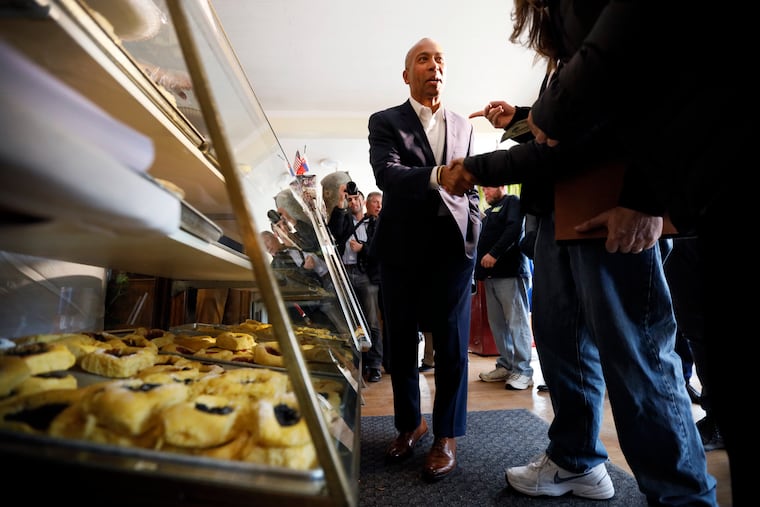What are Deval Patrick and Michael Bloomberg thinking? | Opinion
With the Iowa caucuses less than three months away, we should be seeing more candidates dropping out, not jumping in.

No, no, no, no. This whole Democratic nomination fight is going in the wrong direction. With the Iowa caucuses less than three months away, we should be seeing more candidates dropping out, not jumping in.
Yet here comes former Massachusetts Gov. Deval Patrick, who announced his candidacy Thursday after a couple of days of speculation, with former New York City Mayor Michael Bloomberg — who is so rich he could fit Donald Trump in his coin purse — hovering on the sidelines (again).
Does this add anything to the options for Democrats? Not really. Patrick is a former corporate lawyer (Texaco, always popular with Democrats) and executive (Coca-Cola) who stands somewhat to the left of where you’d find most moderate Democrats. For example, he backed same-sex marriages, universal pre-K education, and free community college tuition in Massachusetts, and supported carbon-limiting programs.
And his most recent job with the investment firm Bain Capital — cofounded by another former Massachusetts governor and one-time Republican presidential candidate, Mitt Romney — puts him on the wrong end of the income inequality scale for most Democrats. Though the Double Impact division he helped run focused on “sustainability, health and wellness, and education and workforce development,” areas that liberal Democrats tend to like.
Bloomberg, a onetime Republican who has drifted across the political spectrum, is now moderately liberal, as reflected by his strong financial support for gun control and combating climate change. Despite his name recognition, he has little support among Democrats, according to recent polling (and according to the New York Times, a problematic history of misogynistic comments). And frankly, a “Rock 'Em, Sock ‘Em” fight for the presidency between a couple of New York City billionaires wouldn’t rustle up much enthusiasm nationwide.
But the Democratic field remains so unsettled, you can see why anyone with deep pockets (Bloomberg) or ambition (Patrick) would say, “Why not?” That’s not a good place for the Democratic Party to be right now. Recent polling aggregated by RealClearPolitics shows former Vice President Joe Biden with a healthy lead nationally, but with only 26% support. And that amounts to even less since winning the nomination requires surviving state-by-state battles. And in those tests, it’s still a free-for-all.
In Iowa, Massachusetts Sen. Elizabeth Warren leads by a fraction with 20%, followed by South Bend, Ind., Mayor Pete Buttigieg at 19.7%, Biden at 17%, and Vermont Sen. Bernie Sanders at 16.3%. So four candidates are within four points of each other and account for nearly three-quarters of likely caucusgoers. No clear leader there, but not much room for a fresh entry, either.
In New Hampshire, Biden, Warren, and Sanders are within a point of each other, with Biden and Warren leading with 19.7%.
Neither of those contests will create a nominee, but they are crucial for building momentum — and fund-raising capability — going into the next few races (with Biden currently leading in Nevada and South Carolina) until March 3, a Super Tuesday with 14 primaries (plus votes in American Samoa and the start of the March 3-10 Democrats Abroad primary), including California, where Warren, Biden, and Sanders are the top dogs, accounting for two-thirds of current support.
It’s hard to figure where Patrick and Bloomberg see a path to the nomination at this point, unless, shark-like, they smell blood in the water around Biden and think his slowly sinking support will leave some room in the pool for them. But at this stage, the Democrats need more clarity, not less.
Scott Martelle, who joined the Los Angeles Times’ editorial board in 2014, is a veteran journalist and author of six history books.